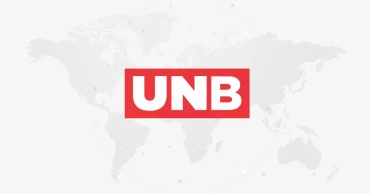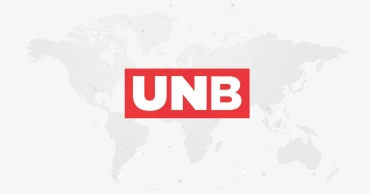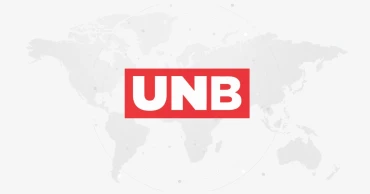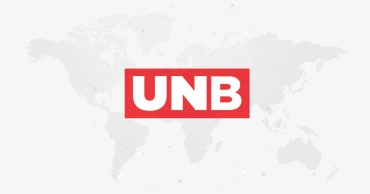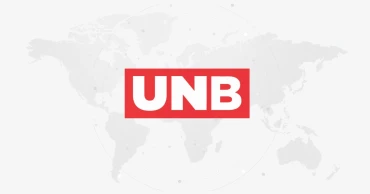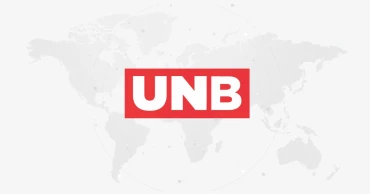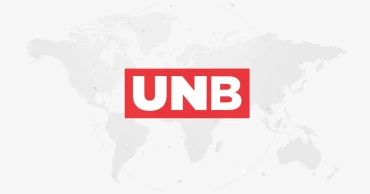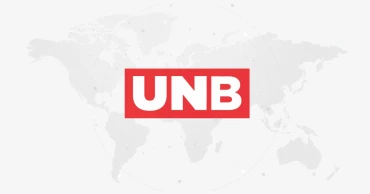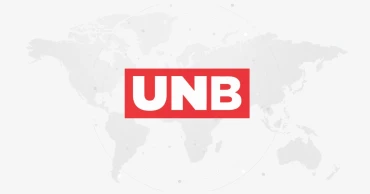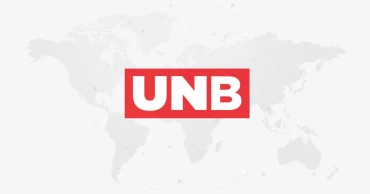Latin-America
Pro-Bolsonaro rioters storm Brazil’s top government offices
RIO DE JANEIRO, Jan 99 (AP/UNB) — Supporters of former Brazilian President Jair Bolsonaro who refuse to accept his election defeat stormed Congress, the Supreme Court and presidential palace Sunday, a week after the inauguration of his leftist rival, President Luiz Inácio Lula da Silva.
Thousands of demonstrators bypassed security barricades, climbed on roofs, smashed windows and invaded all three buildings, which were believed to be largely vacant on the weekend. Some of the demonstrators called for a military intervention to either restore the far-right Bolsonaro to power or oust Lula from the presidency.
Read more: Brazil's Lula sworn in, vows accountability and rebuilding
Hours went by before control of the buildings on Brasilia’s vast Three Powers Square was reestablished, with hundreds of the participants arrested.
In a news conference from Sao Paulo state, Lula accused Bolsonaro of encouraging the uprising by those he termed “fascist fanatics,” and he read a freshly signed decree for the federal government to take control of security in the federal district.
“There is no precedent for what they did and these people need to be punished,” Lula said.
TV channel Globo News showed protesters wearing the green and yellow colors of the national flag that also have come to symbolize the nation’s conservative movement and were adopted by Bolsonaro’s supporters.
The former president has repeatedly sparred with Supreme Court justices, and the room where they convene was trashed by the rioters. They sprayed fire hoses inside the Congress building and ransacked offices at the presidential palace. Windows were broken in all of the buildings.
Bolsonaro, who flew to Florida ahead of Lula’s inauguration, repudiated the president’s accusation late Sunday. He wrote on Twitter that peaceful protest is part of democracy but vandalism and invasion of public buildings are “exceptions to the rule.”
Police fired tear gas in their efforts to recover the buildings, and were shown on television in the late afternoon marching protesters down a ramp from the presidential palace with their hands secured behind their backs. By early evening, with authorities’ control of the buildings restored, Justice Minister Flavio Dino said in a news conference that roughly 200 people had been arrested and officers were firing more tear gas to drive away lingering protesters.
But with the damage already done, many in Brazil were questioning how the police had ignored abundant warnings, were unprepared or were somehow complicit.
Lula said at his news conference there was “incompetence or bad faith″ on the part of police, and that they had been likewise complacent when Bolsonaro supporters rioted in the capital weeks ago. He promised those officers would be punished and expelled from the corps.
The incident recalled the Jan. 6, 2021, assault on the U.S. Capitol by supporters of then-President Donald Trump. Political analysts have warned for months that a similar storming was a possibility in Brazil, given that Bolsonaro has sown doubt about the reliability of the nation’s electronic voting system — without any evidence. The results were recognized as legitimate by politicians from across the spectrum, including some Bolsonaro allies, as well as dozens of foreign governments.
Unlike the 2021 attack in the U.S., few officials were likely to have been working in the Brazilian Congress and Supreme Court on a Sunday.
U.S. President Joe Biden told reporters that the riots in Brazil were “outrageous.” His national security adviser Jake Sullivan went a step further on Twitter and said the U.S. “condemns any effort to undermine democracy in Brazil.”
Biden later tweeted that he looked forward to continuing to work with Lula, calling the riots an “assault on democracy and on the peaceful transfer of power in Brazil.”
British Foreign Secretary James Cleverly tweeted: “The violent attempts to undermine democracy in Brazil are unjustifiable. President @LulaOficial and the government of Brazil have the full support of the UK.”
U.N. Secretary-General Antonio Guterres also said on Twitter that he condemned the assault on Brazil’s democratic institutions but he was confident “the will of the Brazilian people and the country’s institutions” would be respected.
Earlier videos on social media showed a limited presence of the capital’s military police; one showed officers standing by as people flooded into Congress, with one using his phone to record images. The capital’s security secretariat didn’t respond to a request from The Associated Press for comment about the relative absence of the police.
“Brazilian authorities had two years to learn the lessons from the Capitol invasion and to prepare themselves for something similar in Brazil,” said Maurício Santoro, political science professor at the State University of Rio de Janeiro. “Local security forces in Brasilia failed in a systematic way to prevent and to respond to extremist actions in the city. And the new federal authorities, such as the ministers of justice and of defense, were not able to act in a decisive way.”
Federal District Gov. Ibaneis Rocha confirmed on Twitter he had fired the capital city’s head of public security, Anderson Torres. Local media reported that Torres is currently in the U.S.
The office of Lula’s attorney general asked the Supreme Court to order Torres’ imprisonment.
Bolsonaro supporters have been protesting Lula’s electoral win since Oct. 30, blocking roads, setting vehicles on fire and gathering outside military buildings, urging the armed forces to intervene. The head of Brazil’s electoral authority rejected the request from Bolsonaro and his political party to nullify ballots cast on most electronic voting machines.
“Two years since Jan. 6, Trump’s legacy continues to poison our hemisphere,” U.S. Sen. Bob Menendez, who chairs the Senate’s foreign relations committee, tweeted, adding that he blamed Bolsonaro for inciting the acts. “Protecting democracy & holding malign actors to account is essential.”
Brazil prepares to bury Pelé in city he made football mecca
Forty-five years after Pelé played his last game, it's hard to imagine modern soccer, or Brazil, without him.
Geovana Sarmento, 17, waited in the three-hour line to view his body as it lay in repose at the stadium where he played for most of his career. She came with her father, who was wearing a Brazil shirt with Pelé’s name.
“I am not a Santos fan, neither is my father. But this guy invented Brazil’s national team. He made Santos stronger, he made it big, how could you not respect him? He is one of the greatest people ever, we needed to honor him,” she said.
Pelé will be buried Tuesday in the city where he grew up, became famous, and helped make into a global capital of soccer. A Catholic Mass will be celebrated at the Vila Belmiro stadium before his casket is ushered through the streets of Santos to a nearby cemetery.
Brazil’s newly inaugurated President Luiz Inácio Lula da Silva, who was sworn in for a third term Sunday after a comeback victory, paid his respects at Vila Belmiro.
Read more: Brazilians mourn Pelé at the stadium where he got his start
The soccer great died Thursday at age 82 after a battle with cancer. He was the only player ever to win three World Cups.
Thousands of mourners, including high school students and supreme court justices, filed Monday past the body of Pelé on the century-old field where he made his hometown team one of Brazil’s best. Pelé’s coffin, draped in the flags of Brazil and the Santos FC football club, was placed on the midfield area of Vila Belmiro.
Lula arrived at 9 a.m. and took part in a Catholic Mass as fans continued to walk past the coffin, and expressed his condolences to Pelé’s widow, Marcia Aoki, holding her head between his hands. He left 30 minutes later.
The storied 16,000-seat stadium was surrounded by mourning fans, and covered with Pelé-themed decorations inside. Fans coming out of the stadium said they’d waited three hours in line, standing under a blazing sun.
Caio Zalke, 35, an engineer, wore a Brazil shirt as he waited in line. “Pelé is the most important Brazilian of all time. He made soccer important for Brazil and he made Brazil important for the world,” he said.
In the 1960s and 70s, Pelé was perhaps the world’s most famous athlete. He met presidents and queens, and in Nigeria a civil war was put on hold to watch him play. Many Brazilians credit him with putting the country on the world stage for the first time.
Rows of shirts with Pelé’s number 10 were placed behind one of the goals, waving in the city’s summer winds. A section of the stands was filling up with bouquets of flowers placed by mourners and sent by clubs and star players — Neymar and Ronaldo among them — from around the world as loudspeakers played a song named “Eu sou Pelé” (“I am Pelé”) that was recorded by the Brazilian himself.
Read more: 'Greatest of all time': Pelé as described by his peers
The crowd was mostly local, although some came from far away. Many mourners were too young ever to have seen Pelé play. The mood was light, as people filtered out of the stadium to local bars, wearing Santos FC and Brazil shirts.
Claudio Carrança, 32, a salesman, said: “I never saw him play, but loving Pelé is a tradition that goes from father to son in Santos. I learned his history, saw his goals, and I see how Santos FC is important because he is important. I know some Santos fans have children supporting other teams. But that’s just because they never saw Pelé in action. If they had, they would feel this gratitude I feel now.”
Among those at the stadium was Pelé’s best friend Manoel Maria, also a former Santos player.
“If I had all the wealth in the world I would never be able to repay what this man did for me and my family," Maria said. "He was as great a man as he was as a player; the best of all time. His legacy will outlive us all. And that can be seen in this long line with people of all ages here.”
FIFA President Gianni Infantino told journalists that every country should name a stadium after Pelé.
“I am here with a lot of emotion, sadness, but also with a smile because he gave us so many smiles,” Infantino said. “As FIFA, we will pay a tribute to the ‘King’ and we ask the whole world to observe a minute of silence.”
Another fan and friend in line was Brazilian Supreme Court Justice Gilmar Mendes.
“It is a very sad moment, but we are now seeing the real meaning of this legendary player to our country,” Mendes told journalists. “My office has shirts signed by Pelé, a picture of him as a goalkeeper, also signed by him. DVDs, photos, a big collection of him.”
Pelé had undergone treatment for colon cancer since 2021. The medical center where he had been hospitalized said he died of multiple organ failure as a result of the cancer.
Pelé led Brazil to World Cup titles in 1958, 1962 and 1970 and remains one of the team’s all-time leading scorers with 77 goals. Neymar tied Pelé’s record during this year’s World Cup in Qatar.
Brazil's Lula sworn in, vows accountability and rebuilding
Brazil’s Luiz Inácio Lula da Silva was sworn in as president on Sunday, and in his first address expressed optimism about plans to rebuild while pledging that members of outgoing Jair Bolsonaro’s administration will be held to account.
Lula is assuming office for the third time after thwarting far-right incumbent Bolsonaro’s reelection bid. His return to power marks the culmination of a political comeback that is thrilling supporters and enraging opponents in a fiercely polarized nation.
“Our message to Brazil is one of hope and reconstruction,” Lula said in a speech in Congress’ Lower House after signing the document that formally instates him as president. “The great edifice of rights, sovereignty and development that this nation built has been systematically demolished in recent years. To re-erect this edifice, we are going to direct all our efforts.”
Sunday afternoon in Brasilia's main esplanade, the party was on. Tens of thousands of supporters decked out in the red of Lula’s Workers’ Party cheered after his swearing in.
They celebrated when the president said he would send a report about the prior administration to all lawmakers and judicial authorities, revoke Bolsonaro's “criminal decrees” that loosened gun control, and hold the prior administration responsible for its denialism in the face of the COVID-19 pandemic.
“We do not carry any spirit of revenge against those who sought to subjugate the nation to their personal and ideological designs, but we are going to ensure the rule of law," Lula said, without mentioning Bolsonaro by name. "Those who erred will answer for their errors, with broad rights to their defense within the due legal process.”
Lula’s presidency is unlikely to be like his previous two mandates, coming after the tightest presidential race in more than three decades in Brazil and resistance to his taking office by some of his opponents, political analysts say.
Read more: Brazil: Can Lula the Lefty do better?
The leftist defeated Bolsonaro in the Oct. 30 vote by less than 2 percentage points. For months, Bolsonaro had sown doubts about the reliability of Brazil’s electronic vote and his loyal supporters were loath to accept the loss.
Many have gathered outside military barracks since, questioning results and pleading with the armed forces to prevent Lula from taking office.
His most die-hard backers resorted to what some authorities and incoming members of Lula’s administration labeled acts of “terrorism” – which had prompted security concerns about inauguration day events.
Lula will have to navigate more challenging economic conditions than he enjoyed in his first two terms, when the global commodities boom proved a windfall for Brazil.
At the time, his administration's flagship welfare program helped lift tens of millions of impoverished people into the middle class. He left office with a personal approval rating of 83%.
In the intervening years, Brazil’s economy plunged into two deep recessions — first, during the tenure of his handpicked successor, and then during the pandemic — and ordinary Brazilians suffered greatly.
Lula has said his priorities are fighting poverty, and investing in education and health. He has also said he will bring illegal deforestation of the Amazon to a halt. He sought support from political moderates to form a broad front and defeat Bolsonaro, then tapped some of them to serve in his Cabinet.
In his first act as president Sunday, Lula signed a decree to tighten gun control and set a 30-day deadline for the comptroller-general’s office to evaluate various Bolsonaro decrees that placed official information under seal for 100 years. He also signed a decree that guaranteed a monthly stipend for poor families, and reestablished the mostly Norway-financed Amazon fund for sustainable development in the rainforest.
Claúdio Arantes, a 68-year-old pensioner, carried an old Lula campaign flag on his way to the esplanade. The lifelong Lula supporter attended his 2003 inauguration, and agreed that this time feels different.
“Back then, he could talk about Brazil being united. Now it is divided and won’t heal soon,” Arantes said. “I trust his intelligence to make this national unity administration work so we never have a Bolsonaro again.”
Read more: Brazil election: Lula defeats Bolsonaro to become president again
Given the nation’s political fault lines, it is highly unlikely Lula ever reattains the popularity he once enjoyed, or even sees his approval rating rise above 50%, said Maurício Santoro, a political science professor at Rio de Janeiro’s State University.
Furthermore, Santoro said, the credibility of Lula and his Workers’ Party were assailed by a sprawling corruption investigation. Party officials were jailed, including Lula — whose convictions were later annulled on procedural grounds. The Supreme Court then ruled that the judge presiding over the case had colluded with prosecutors to secure a conviction.
Lula and his supporters have maintained he was railroaded. Others were willing to look past possible malfeasance as a means to unseat Bolsonaro and bring the nation back together.
“I always wanted to go the inauguration, I didn’t think I would have a chance to see Lula there after he was jailed,” said Tamires Valente, 43, a marketing professional from Brasilia. “I am very emotional, Lula deserves this.”
But Bolsonaro’s backers refuse to accept someone they view as a criminal returning to the highest office. And with tensions running hot, a series of events has prompted fear that violence could erupt on inauguration day.
On Dec. 12, dozens of people tried to invade a federal police building in Brasilia, and burned cars and buses in other areas of the city. Then on Christmas Eve, police arrested a 54-year-old man who admitted to making a bomb that was found on a fuel truck headed to Brasilia’s airport.
He had been camped outside Brasilia’s army headquarters with hundreds of other Bolsonaro supporters since Nov. 12. He told police he was ready for war against communism, and planned the attack with people he had met at the protests, according to excerpts of his deposition released by local media.
Bolsonaro finally condemned the bomb plot in a Dec. 30 farewell address on social media, hours before flying to the U.S.. His absence on inauguration day marks a break with tradition.
Instead of Bolsonaro, a group representing diverse segments of society performed the role of presenting Lula with the presidential sash to Lula atop the ramp of the presidential palace. Across the sea of people standing before the palace, supporters stretched a massive Brazilian flag over their heads.
Speaking to the crowd, Lula listed shortfalls in government funds that will affect the Brazilian people. He said that, according to the transition team’s report on Bolsonaro’s government, textbooks haven’t been printed for public schools, there are insufficient free medications and COVID-19 vaccines, the threat looms of federal universities shutting down, and civil defense authorities cannot work to prevent disasters.
“Who pays the price for this blackout is, once again, the Brazilian people,” he said, and was promptly met by a chant from the crowd: “No amnesty! No amnesty! No amnesty!”
Migrant shelters try to help traumatized assault survivors
Since he began volunteering two months ago for weekend shifts at a clinic in one of this border city’s largest shelters, Dr. Brian Elmore has treated about 100 migrants for respiratory viruses and a handful of more serious emergencies.
But it’s a problem he hasn’t yet managed to address that worries him the most – the worsening trauma that so many migrants carry after long journeys north that often involve witnessing murders and suffering from kidnappings and sexual assault.
“Most of our patients have symptoms of PTSD — I want to initiate a screening for every patient,” said Elmore, an emergency medicine doctor, at Clinica Hope. It was opened this fall by the Catholic nonprofit Hope Border Institute with help from Bishop Mark Seitz of El Paso, Texas, which borders Juarez.
Doctors, social workers, shelter directors, clergy and law enforcement say growing numbers of migrants suffer violence that amounts to torture and are arriving at the U.S.-Mexican border in desperate need of trauma-informed medical and mental health treatment.
But resources for this specialized care are so scarce, and the network of shelters so overwhelmed by new arrivals and migrants who’ve been stuck for months by U.S. asylum policies, that only the most severe cases can be handled.
“Like a pregnant 13-year-old who fled gang rapes, and so needs help with childcare and middle school,” said Zury Reyes Borrero, a case manager in Arizona with the Center for Victims of Torture, who visited that girl when she gave birth. “We get people at their most vulnerable. Some don’t even realize they’re in the U.S.”
In the past six months, Reyes Borrero and a colleague have helped about 100 migrants at Catholic Community Services’ Casa Alitas, a shelter in Tucson, Arizona, that in December was receiving about 700 people daily released by U.S. authorities and coming from countries as distinct as Congo and Mexico.
Read more: Migrants near US border face cold wait for key asylum ruling
Each visit can take hours, as the case workers try to build a rapport with migrants, focusing on empowering them, Reyes Borrero said.
“This is not a community that we talk babbling brook with... They might not have any memory that’s safe,” said Sarah Howell, who runs a clinical practice and a nonprofit treating migrant survivors of torture in Houston.
When she visits patients in their new Texas communities, they routinely introduce relatives or neighbors who also need help with severe trauma but lack the stability and safety necessary for healing.
“The estimated level of need is at least five times higher than we support,” said Leonce Byimana, director of U.S. clinical services for the Center for Victims of Torture, which operates clinics in Arizona, Georgia and Minnesota.
Most migrants are traumatized by what they left behind, as well as what they encountered en route, Byimana said. They need “first-aid mental health” as well as long-term care that’s even harder to arrange once they disperse from border-area shelters to communities across the country, he added.
Left untreated, such trauma can escalate to where it necessitates psychiatric care instead of therapy and self-help, said Dylan Corbett, Hope Border Institute’s executive director.
Jesuit Refugee Service/USA, the U.S. branch of the global Catholic refugee agency, is planning to ramp up mental health resources in the coming weeks in El Paso, which has seen a surge in crossings, said its director, Joan Rosenhauer.
All along the border, the most staggering trend has been the increase in pregnant women and girls, some younger than 15, who are victims of assault and domestic violence.
Volunteers and advocates are encountering so many of these survivors that they had to focus scarce legal, medical and shelter resources on helping them, leaving hundreds of other victims of political violence and organized crime to fend for themselves.
Service providers and migrants say the most dangerous spot on journeys filled with peril at every step is “la selva” – the Darien Gap jungle separating Colombia from Panama, crossed by increasing numbers of Venezuelans, Cubans and Haitians who first moved to South America and are now seeking safer lives in the United States
Natural perils like deadly snakes and rivers only add to the risks of an area rife with bandits preying on migrants. Loreta Salgado was months into her flight from Cuba when she crossed the Darien.
Read more: Over 280m people leave home for a better life: UN
“We saw many dead, we saw people who were robbed, people who were raped. We saw that,” she repeated, her voice cracking, in a migrant shelter in El Paso a few days before Christmas.
Asked about “la selva,” some women just suck in their breath – and only later reveal having saved their daughters by speeding them along and getting raped themselves, or enduring strained relationships with their partners who were made to watch the assault, Howell said.
“I don’t think it’s the first rape that most women I’ve talked to have experienced. But it’s the most violent and the most shameful, because it was in front of other people,” Howell added.
In many cases, forensic evaluations at border clinics that document mental and physical abuse are also crucial to migrants’ asylum cases, because often no other evidence is available for court proceedings, Byimana said. Asylum is granted to those who cannot return to their countries for fear of persecution on specific grounds, including sometimes very high, systemic levels of violence against women.
But it takes years for asylum cases to be decided in U.S. immigration court, with a current backlog of more than 1.5 million people, according to Syracuse University’s Transactional Records Access Clearinghouse. And that’s with pandemic-era restrictions still in place that allow authorities to turn away or expel most asylum-seekers.
A long wait for resolution, coming on top of a long journey across multiple countries, can intensify the trauma that migrants experience, advocates say.
“There’s a different tension and fear in faces than I’ve seen before,” said Howell, who’s been researching trauma and forced migration for 15 years. “They don’t know how to stop running.”
Venezuelan opposition strips Guaidó of 'presidential' role
For three years, Juan Guaidó led the Venezuelan opposition’s efforts to bring about new elections and remove socialist President Nicolás Maduro.
But on Friday, dozens of politicians who once backed Guaidó voted in favor of removing the 39-year-old engineer and replacing his U.S.-supported “interim government” with a committee to oversee presidential primaries next year and protect the nation’s assets abroad.
The vote reflects a changing balance of power within the opposition, which is trying to find new ways to connect with voters ahead of the nation’s 2024 presidential election.
Three of Venezuela’s four main opposition parties backed the proposal to remove Guaidó, who was supported only by his own Popular Will party.
After the vote, Guaidó said the move would create a “power vacuum” that could encourage more foreign nations to recognize the Maduro administration.
“If there is no interim government, who will they recognize in its place,” he said. “Today we have jumped into the abyss. And given up on an important tool in our struggle.”
Guaido's opponents said new ways of connecting with voters should be found. The interim government has no sway over local institutions and is unable to provide basic services, with some Venezuelans mocking it as a “fake” government.
“It's with a heavy heart that I make this vote,” said Luis Silva, a member of the Democratic Action party who participated in the online session for the vote. “We haven’t been able to come up with a unanimous decision, but we need to look for new strategies.”
Daniel Varnagy, a political science professor at Simon Bolivar University in Caracas, said the opposition had generated high expectations under Guaidó’s leadership but then failed to keep its promises to people yearning for a change in Venezuela's governance.
"He promised to cease (Maduro’s) usurpation, lead a transition and organize fair elections, and none of that happened,” Varnagy said.
Guaidó rose to leadership of the opposition in 2019 when he was president of the then opposition-controlled legislature, which had begun its five-year term in 2015 after what many observers considered Venezuela’s last fair elections. It was the last instution not controlled by Maduro's socialists.
The National Assembly argued Maduro won his second presidential term illegally in 2018 because his main rivals were banned from running. So the opposition legislators created an “interim government,” headed by Guaidó, that was meant to last until Maduro stepped down and free elections could be held.
Guaidó organized protests in Venezuela, snuck out of the country for an international tour and was recognized as the nation’s legitimate leader by the United States and dozens of European and Latin American governments that rejected Maduro’s rule.
His interim administration was also given control of Venezuelan government assets abroad that had been frozen, including Citgo, the Houston-based oil refiner.
But the Guaidó-led opposition failed to win over the Venezuelan military or the nation’s courts to its side, while Maduro’s administration faced down street demonstrations and tightened its grip even more on the South American nation.
The failure to drive out Maduro frustrated Venezuelans, who are struggling with high inflation, food shortages and the lowest wages in South America — hardships that prodded millions of people to migrate in recent years.
In a poll taken by Venezuela’s Andres Bello University in November, only 6% of Venezuelans said they would vote for Guaidó if he participated in presidential primaries next year while a few other opposition leaders got bigger numbers.
Guaidó’s influence has also diminished since late 2020, when the National Assembly that elected him as interim president was replaced by new legislators chosen in elections boycotted by opposition parties.
Many members of the 2015 National Assembly are now in exile, but they continue to claim to be Venezuela’s legitimate legislative branch and hold online meetings in which they make decisions on issues involving the “interim government.”
On Friday, 72 of the 109 former legislators who participated in the online session voted in favor of a measure calling for replacing Guaidó’s interim administration with a committee made up of several opposition leaders.
___
Rueda reported from Bogota, Colombia.
Days before new president, old divisions tearing at Brazil
Trumpets and snares will play Brazil’s national anthem at Luiz Inácio Lula da Silva’s swearing-in on Jan. 1. Then, one will hear a different song on the streets, its lyrics taking a shot at outgoing President Jair Bolsonaro.
“It is time for Jair, it is time for Jair ... to go away!” the lyrics say. “Pack your bags, hit the road and go away!”
When Lula clinched his election win over Bolsonaro on Oct. 30, tens of thousands of people sang the familiar tune throughout the night, pushing the song to the top of Spotify’s list in Brazil and showing one way that many Brazilians aren’t ready to extend olive branches.
Healing Brazil’s divided society will be easier said than done. Lula’s Cabinet appointments thus far favoring leftists and stalwarts of his Workers’ Party are turning off those who trusted the divisive 77-year-old to govern alongside moderates, and who joined forces after Bolsonaro repeatedly tested the guardrails of the world’s fourth-biggest democracy.
“Governing Brazil means deals with agribusiness, evangelicals, former Bolsonaro allies. It can be frustrating for half-hearted Lula voters, but that’s what they have before them,” said Carlos Melo, a political science professor at Insper University in Sao Paulo.
Of course, Bolsonaro’s far-right backers are hardly the picture of post-election bonhomie. Many reject results of the vote and remain camped outside military buildings nationwide, demanding that Lula’s inauguration be impeded.
Brazil’s October election was its closest in more than three decades, pitting two arch-rivals against one another. In Lula’s victory speech on Oct. 30, he declared that “there are not two Brazils,” as tens of thousands gathered outside his hotel in Sao Paulo to celebrate his victory and Bolsonaro’s defeat.
A hopeful sign for Lula’s bridge-building ambitions came days later, with leftists and moderates once again donning the nation’s yellow soccer jersey to cheer on their team at the World Cup. The shirt for almost a decade has been an anti-left symbol and often featured in protests against Lula and in favor of Bolsonaro.
Lula and his allies wore the yellow shirt, too, in an effort to reclaim it; he posted photos of himself to social media, and said green and yellow “are the colors of 213 million people who love this country.” Salesman Elias Gaspar said yellow jerseys started flying off his rack as the team’s flamboyant performances trickled in.
“Before the World Cup I would sell on average six blue shirts and four yellow out of every ten,” Gaspar, 43, said on Dec. 4. “Now it is almost all yellow.”
Read more: Brazil election: Lula defeats Bolsonaro to become president again
Soccer was a short-lived unifying force. Brazil exited the tournament earlier than expected after a surprise penalty shootout loss to Croatia in the quarterfinals, and most Brazilians stuffed their jerseys back in their drawers. Bolsonaro’s backers are the only ones still sporting the national colors.
Lula has avoided inflaming tensions, mostly refraining from public attacks against Bolsonaro or his supporters, and instead focusing speeches on helping the most disadvantaged Brazilians once he returns to the office he held from 2003 to 2010. At times, though, us-versus-them comments have slipped past his lips. On Dec. 22, while announcing new ministers, he said Bolsonarismo remains alive and angry among those who refuse to recognize the electoral loss, so it must be defeated on Brazil’s streets.
For defense minister, Lula picked conservative José Múcio Monteiro after four years of Bolsonaro striving to secure the armed forces’ allegiance.
Other Lula appointments seem crafted to please his base and party, such as Anielle Franco, sister of slain Rio de Janeiro city councilwoman Marielle Franco, for minister of racial equality. He also tapped long-time ally Aloizio Mercadante to head the country’s development bank -- precisely the sort of position business leaders expected to remain clear of Workers’ Party hands.
Gleisi Hoffmann, the chairwoman of Lula’s Workers’ Party, said building a Cabinet would be a challenge even if Lula were only selecting progressives. Complicating decisions further is the fact that some would-be ministers are likely 2026 presidential candidates, as Lula has indicated he won’t run for reelection.
“We have our differences within the Workers’ Party, now go figure what happens when we bring a dozen other parties,” Hoffmann said on her social media channels Dec. 16. “It is a puzzle, it takes time.”
That may help explain why the number of ministries will nearly double, to 37.
Centrist endorsements from former environment minister Marina Silva and Simone Tebet, who finished third in the presidential race’s first round, brought in votes from Brazil’s moderates -- a demographic that grew leery of Lula since the sprawling Car Wash corruption probe landed him in jail in 2018. With their support, he beat Bolsonaro by less than two percentage points. Many expected them to be quickly announced as ministers, but negotiations have dragged on.
Thomas Traumann, a political consultant, said delays reflect the fact the president-elect has had a central role in negotiations for positions.
“People who helped him like Marina and Simone will have less stature than they would have had they been appointed shortly after he won,” Traumann said. “Lula’s luck is that moderates will view his administration like many leftist Democrats see (U.S. President Joe) Biden: they might not like what they see, but it is better than the alternative.”
Biden’s attempt to bridge the political chasm could offer an instructional, albeit dispiriting, model, said Brian Ott, a professor of communication at Missouri State University who has researched the stratifying impact of social media on American political discourse.
Read more: Brazil election body rejects Bolsonaro's push to void votes
Early in his presidency, Biden did not shy away from the fact that he was governing in a polarized country and played up his bonafides as a throwback to a different era when Democrats and Republicans could battle on the Senate floor before repairing to the dining room to hammer out compromises.
“The problem that Biden faces and the problem that politicians face in 51% countries like Brazil is there may no longer be smart strategies to deliver big tent messages without alienating your base,” said Ott. “We are now in a period where politics is so intensely, deeply divided culturally, where people don’t have to be exposed to different points.”
On Dec. 22, Lula named 16 ministers, bringing his total thus far to 21. Neither Tebet nor Silva are among them.
“It is harder to assemble a government than to win elections,” he said while counseling his appointees to hire staffers from diverse backgrounds. “We’re trying to make a government that, as much as we can, represents the political forces that participated in our campaign.”
He added that people who helped and haven’t yet been named will be taken into account, and are owed a debt for “daring to stick their necks out to confront fascism.”
Still, many new Lula voters already feel inclined to jump ship. One is Thereza Bittencourt, 65, who spoke at a military club in Rio and said initial signs worry her.
“I took a lot of criticism from my friends at the club because I voted for Lula. All of them chose Bolsonaro. I told them the management of the economy would be better,” Bittencourt said as she sipped her caipirinha. “If I only see members of the Workers’ Party in the government, goodbye.”
Pelé’s family gathers at hospital in Sao Paulo
Family members of Brazilian soccer great Pelé are gathering at the Albert Einstein hospital in Sao Paulo where the 82-year-old global icon has been since the end of November.
Doctors said earlier this week that Pelé’s cancer had advanced, adding the three-time World Cup winner is under “elevated care” related to “kidney and cardiac dysfunctions.” No other hospital statements have been published since.
Read more: Pelé’s family: COVID caused infection, death not imminent
Edson Cholbi Nascimento, one of Pelé’s sons and known as Edinho, arrived Saturday, one day after he gave a news conference to deny he would visit his father in hospital. Edinho, who works for a soccer club in southern Brazil, had said then that only doctors could help his father.
“He (Edson) is here,” Kely Nascimento, one of Pelé’s daughters, said in a posting on Instagram with a picture showing her sitting next to Edinho and two of his children at the hospital. “I am not leaving, no one will take me out of here.” Hours later, Edinho, a former Santos goalkeeper, posted a picture showing his hand holding his father’s.
“Dad... my strength is yours,” Pelé’s son said.
Edson Arantes do Nascimento, who is globally known as Pelé, had a colon tumor removed in September 2021. Neither his family nor the hospital have said whether it had spread to other organs.
Read more: Image of Pelé shines bright for Brazilian fans at World Cup
Kely Nascimento and her sister Flavia Arantes do Nascimento used their social media channels Friday night to post an undated picture of Pelé apparently holding Kely with one hand as he lay on his hospital bed and Flavia slept on a couch.
“We continue to be here, in this fight and with faith. Another night together,” Kely Nascimento wrote.
The hospital has not mentioned any signs of Pelé’s recent respiratory infection, which was aggravated by COVID-19.
Newspaper Folha de S.Paulo reported last weekend that Pelé’s chemotherapy was not working and that doctors had decided to put him on palliative care. Pelé’s family denied that report.
Pelé led Brazil to victory in the 1958, 1962 and 1970 World Cups and remains one of the team’s all-time leading scorers with 77 goals. Neymar tied Pelé’s record during the latest World Cup.
Peru judge orders 18-month detention for ousted president
A Peruvian judge on Thursday ordered ousted President Pedro Castillo to remain in custody for 18 months as nationwide protests set off by the political crisis showed no signs of abating and the death toll rose to at least 14.
The judge’s decision came a day after the government declared a police state as it struggles to calm the violence that has been particularly fierce in impoverished Andean regions that were the base of support for Castillo, a leftist former schoolteacher, himself of humble roots.
The ouster of the political neophyte whose surprise election last year brought immediate pushback from the political elite has drawn thousands of his loyal supporters to the streets.
Forty people remained hospitalized for injuries suffered during the civil unrest, according to the Ministry of Health.
The protests erupted after Castillo was removed from power by lawmakers last week, following his attempt to dissolve Congress ahead of a third impeachment vote. The crisis has only deepened the instability gripping the country, which has had six presidents in as many years.
Judge Juan Carlos Checkley Soria’s ruling came after Congress stripped Castillo of the privilege that keeps Peru’s presidents from facing criminal charges.
Castillo and his legal team refused to participate in Thursday’s virtual hearing, arguing it lacked “minimum guarantees.” He was represented by a public defender, who said the judge’s decision will be appealed.
Peru’s Supreme Prosecutor Alcides Chinchay said in court Thursday that Castillo faces at least 10 years in prison on charges of rebellion.
Meanwhile, a large group of protesters — and police in riot gear — gathered in central Lima Thursday evening. The government also imposed a roughly dusk-to-down curfew for five days in at least 15 communities, as allowed by the nationwide emergency declaration issued Wednesday.
The protesters were demanding Castillo’s freedom, the resignation of President Dina Boluarte, and the immediate scheduling of general elections to pick a new president and members of Congress. They have burned police stations, taken over an airstrip used by the armed forces and invaded the runway of the international airport in Arequipa, a gateway to some of Peru’s tourist attractions.
Thousands of tourists have been affected by the protests. The passenger train that carries visitors to Machu Picchu suspended service, and roadblocks on the Pan-American Highway stranded tractor trailers for days, spoiling food bound for the capital.
In Cusco, a top tourist destination, people were stuck Thursday at hotels and the airport.
Read more: Congress removes Peru's president amid political unrest
“I was about to return to Ecuador on Monday, and unfortunately, they told us that all flights were canceled due to the protests,” said Karen Marcillo, 28, who has had to sleep at the Teniente Alejandro Velasco Astete airport in Cusco.
The impact on tourism comes as Peru is still recovering from the effects of the pandemic, which reduced visitations last year to 400,000, down from 4.4 million in 2019.
While in office, Castillo spent much of his time defending himself against attacks from an adversarial Congress and investigations ranging from corruption to plagiarism. Now, it remains unclear whether Boluarte — once his running mate and vice president — will get a chance to govern. Just like Castillo, she is a newcomer to politics without a base in Congress.
“She’s doing a good job right now,” said Cynthia McClintock, a political science professor at George Washington University who has studied Peru extensively. “But it’s a big challenge.”
While some protesters “seem to want kind of instability at any cost,” McClintock said, others saw Castillo’s ouster as an opening to express simmering grievances, such as deep inequality, poverty and lack of public services.
Boluarte, though, may be given some breathing room by lawmakers seeking to keep their jobs. They cannot pursue re-election and would be jobless if a general election for Congress is scheduled, as protesters want.
Boluarte on Wednesday sought to placate the protesters by saying general elections could potentially be scheduled for December 2023, four months earlier than the timing she had proposed to Congress just a few days earlier.
All of the protest-related deaths have occurred in rural, impoverished communities outside Lima that are strongholds for Castillo, who himself comes from a poor Andean mountain district and had no prior political experience.
In Andahuaylas, where at least four people have died since the demonstrations began, no soldiers were on the streets Thursday despite the government declaration allowing the armed forces to help maintain public order.
Some grocery store owners there were clearing the roads littered with rocks and burned tires, but planned to close their doors because of the expected protests led by people from nearby rural communities.
Castillo’s move to dissolve Congress came as lawmakers began a third attempt to impeach him since he was elected in July 2021. After Congress voted him out of power, Castillo’s vehicle was intercepted as he traveled through Lima’s streets with his security detail.
Chinchay, the government’s top prosecutor, insisted Castillo was a flight risk, saying he was trying to reach the Mexican Embassy to seek asylum after he left the presidential palace.
“We do not believe that he wanted to go to the Mexican Embassy to have tea,” Chinchay said.
In issuing his ruling, the Judge Checkley said a “concrete flight risk” still exists and “remains latent over time. Besides Castillo’s apparent effort to reach the Mexican Embassy, he cited remarks from Mexico’s president and foreign minister regarding their country’s willingness to offer him asylum, and a jail visit he received from Mexico’s ambassador in Peru.
Read more: Anger in rural areas fuel protests against Peru government
Castillo’s public defender, Italo Díaz, rejected assertions the former president is a flight risk. He told the judge Castillo’s children and wife depend on him and he could return to his teaching job if freed.
Castillo is being held at a built-for-presidents detention center inside a National Police facility. On Thursday, police in riot gear stood outside the facility as dozens of Castillo supporters gathered throughout the day.
The state of emergency declaration suspends the rights of assembly and freedom of movement and empowers the police, supported by the military, to search people’s homes without permission or judicial order.
Defense Minister Luis Otarola Peñaranda said the declaration was agreed to by the council of ministers.
On Wednesday, Boluarte pleaded for calm as demonstrations continued against her and Congress. “Peru cannot overflow with blood,” she said.
In a handwritten letter shared Wednesday with The Associated Press by his associate, Mauro Gonzales, Castillo asked the Inter-American Commission on Human Rights to intercede for his “rights and the rights of my Peruvian brothers who cry out for justice.” The commission investigates allegations of human rights violations and litigates them in some cases.
Bolsonaro supporters clash with police in Brazil's capital
Supporters of Brazilian President Jair Bolsonaro clashed with police Monday, setting fire to several vehicles and allegedly attempting to invade the federal police’s headquarters in capital city Brasilia.
Images of chaos as a small number of protesters, many wearing the yellow and green of Brazil's flag that has come to symbolize Bolsonarismo, roamed the city, circulated on local television channels and social media.
Brasilia's public security secretariat said in a statement that clashes broke out after police carried out an arrest warrant. Earlier that day, Supreme Court justice Alexandre de Moraes had ordered the temporary arrest of José Acácio Serere Xavante, suspected of participating in anti-democratic protests.
Read more: Brazilian protests intensify; Bolsonaro stays silent
Since Bolsonaro lost re-election to da Silva on Oct. 30, many of his supporters have gathered outside military barracks across the country refusing to concede defeat and asking for the armed forces to intervene. Earlier Monday, the nation's electoral authority awarded da Silva and his vice president an official certification, sealing their victory.
Bolsonaro, who has repeatedly claimed that the nation's electronic voting system is prone to fraud and has not conceded defeat, told supporters Friday that his political future was in their hands.
“The depredation and attempted invasion of the Federal Police building in Brasilia is unacceptable,” said Flavio Dino, future Justice and Public Security Minister in the upcoming administration of President-elect Luiz Inácio Lula da Silva.
Read more: Brazil election body rejects Bolsonaro's push to void votes
The leader of the opposition in the Senate, Randolfe Rodrigues, said some protestors, whom he called “terrorists,” had concentrated around the hotel where da Silva is staying.
Police in full gear were rushed to the Federal Police’s headquarters as back up, as officers had to use stun grenades and rubber bullets, local media reported. Police also blocked several avenues and streets across Brasilia
Protesters elsewhere set at least one bus on fire and were seen gathering metal barriers.
Anger in rural areas fuel protests against Peru government
The anger of Peruvians against their government is nowhere more visible than in Andahuaylas, a remote rural Andean community where the poor have struggled for years and where voters' support helped elect now-ousted President Pedro Castillo, himself a peasant like them.
Their fury is such that their protests continued Monday despite the deaths of seven people, among them two young demonstrators over the weekend, including 17-year-old Beckham Romario Quispe Garfias
As thousands of people spilled into the streets, Raquel Quispe recalled her brother as a talented athlete tired of feeling invisible in the eyes of politicians. He was named for English soccer great David Beckham and Romario, the Brazilian soccer phenomenon turned politician.
Clouds above her, she stood outside the hospital where his body was kept, and with a simmering anger in her voice, at times betrayed by tears, she summed up what drove him and others to protest since Castillo's ouster last week: an exclusionary democracy.
Read more: Congress removes Peru's president amid political unrest
“For them, those who are there in Congress, the only opinion that is valid is that of Peruvians who have money, of wealthy people,” said Quispe, an early childhood education teacher.
“They do whatever they want. For them... the vote of the provinces is not valid, it is useless. But the vote of the people of Lima is taken into account. That is an injustice for all of Peru.”
About 3,000 people gathered in the streets of Andahuaylas Monday, to protest and to mourn and pay their respects before the white caskets of the young men who died over the weekend. Across the community, rocks were scattered on roads still marked by simmering fires. An airstrip used by the armed forces remained blocked, black smoke still etched on a nearby building.
Demonstrators across rural communities, including Andahuaylas, continued to call on President Dina Boluarte to resign and schedule general elections to replace her and all members of Congress. They also want authorities to free Castillo, who was detained Wednesday when he was ousted by lawmakers after he sought to dissolve Congress ahead of an impeachment vote.
While protesters have also gathered in Lima, the capital, the demonstrations have been particularly heated in rural areas that were strongholds for Castillo, a former schoolteacher and political newcomer from a poor Andean mountain district.
Protesters on Monday went a step further by blocking access to an international airport for several hours in southern Peru and occupying its runway. Demonstrations in Arequipa, where the airport is located, left one protester dead, Minister of Defense Alberto Otarola told lawmakers during a session of Congress focused on the civil unrest.
The Ombudsman’s Office of Peru reported that seven people had died since the demonstrations began Wednesday. Five of them died Monday. All seven deaths happened outside Lima, including four in Andahuaylas.
Read more: Peru extends state of emergency due to COVID-19 amid fourth wave
The escalation came even after Boluarte gave in to protesters’ demands hours earlier, announcing in a nationally televised address that she would send Congress a proposal to move up elections to April 2024 — a reversal of her previous assertion that she should remain president for the remaining 3 1/2 years of her predecessor’s term.
Boluarte, in her address to the nation, also declared a state of emergency in areas outside Lima, where protests have been particularly violent.
“My duty as president of the republic in the current difficult time is to interpret ... the aspirations, interests and concerns ...of the vast majority of Peruvians,” Boluarte said in announcing she would propose early elections to Congress.
Boluarte, 60, was swiftly sworn in Wednesday to replace Castillo, hours after he stunned the country by ordering the dissolution of Congress, which in turn dismissed him for “permanent moral incapacity.” Castillo was arrested on charges of rebellion.
Members of Boluarte’s Cabinet appeared before Congress Monday to give an account of the protests. Far-right lawmaker Jorge Montoya demanded appropriate measures to end the unrest, telling Castillo’s supporters that now that he has been removed that “chapter is closed.”
“These are not acts of protest, they are acts of terrorism that must be drastically punished,” Montoya said. “You cannot defend a situation that is at the extremes.”
Peru has had six presidents in the last six years. In 2020, it cycled through three in a week.
The latest presidential crisis is taking place as the Andes and its thousands of small farms struggle to survive the worst drought in a half-century. The country is also experiencing a fifth wave of COVID-19 cases.
Castillo's supporters had hoped that the populist outsider would address some of the challenges they have long faced. But during his 17 months in office, Castillo could not achieve any signature project and faced the racism and discrimination that his impoverished supporters often experience.
In Andahuaylas, about 80% of voters who cast a ballot during the runoff election last year supported Castillo. His proposals included rewriting the country’s constitution, which was last drafted and approved in 1993 during the government of Alberto Fujimori, the disgraced former president whose daughter, Keiko, lost the presidency to Castillo.
Rosario Garfias was among those demonstrating outside the hospital where her 17-year-old son's body was being held. She expressed heartbreak over her son’s death, speaking in Quechua, one of Peru’s Indigenous languages.
“My mother is making a complaint in her language. I know that many do not understand her, not even Congress understands it,” said her daughter, Raquel Quispe.
“She is saying that ... she is hurting deeply because they have killed him, like in a slaughterhouse. And my mom, like my family, asks for justice for my brother.”
